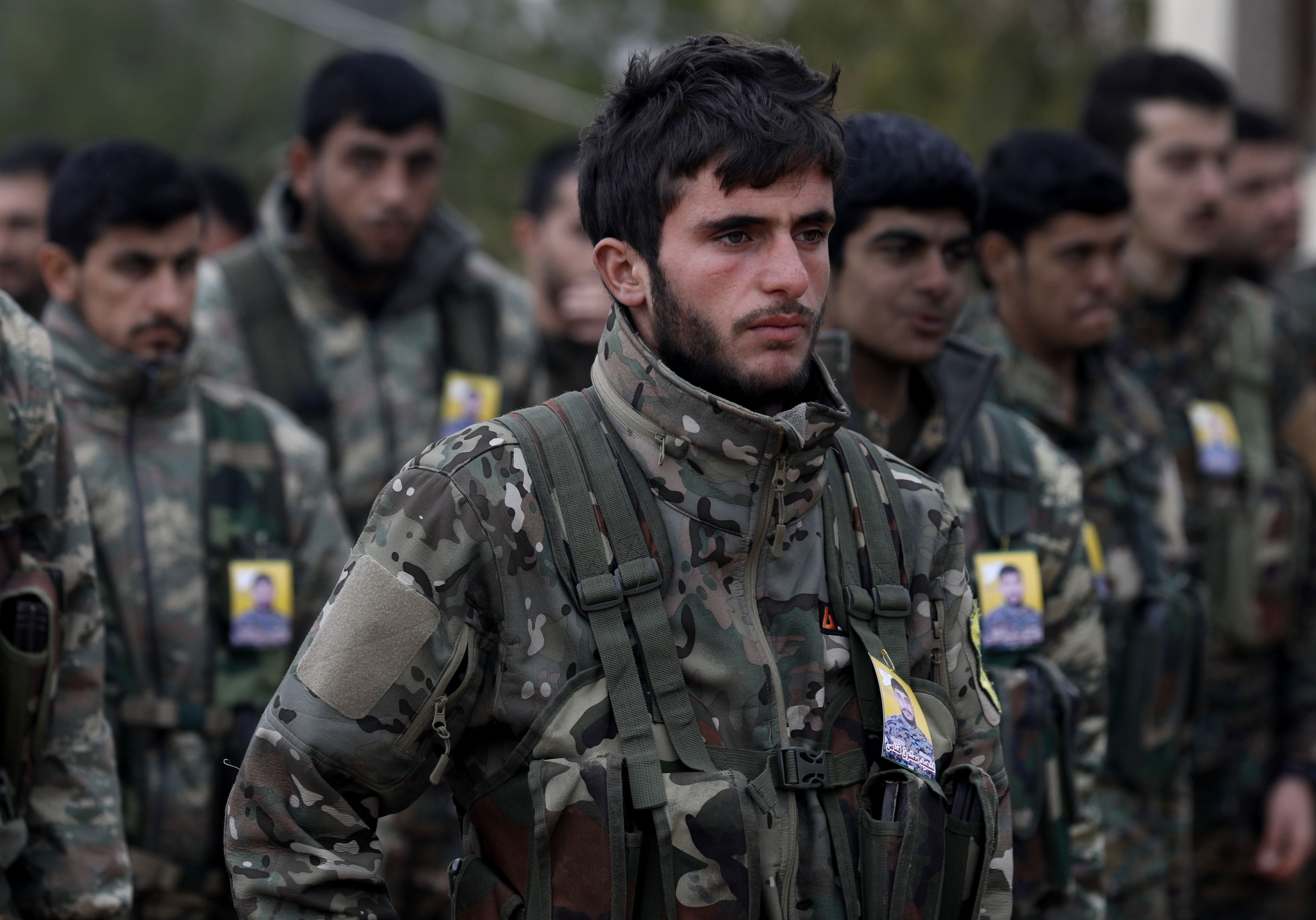WASHINGTON — As President Donald Trump is expected to call for an end America’s ongoing wars overseas, his top general in the Mideast said he was not consulted or warned Trump would declare a U.S. troop withdrawal from Syria.
"I was not aware of the specific announcement. Certainly we were aware that he had expressed a desire and intent,” to leave, Gen. Joseph Votel, who leads U.S. Central Command, told the Senate Armed Services Committee on Tuesday, adding: "I was not consulted."
Trump abruptly tweeted plans for a U.S. pullout from Syria in December, arguing that the Islamic State group had been defeated even though his intelligence chiefs have said it remains a threat. Trump also ordered the military to develop plans to remove up to half of the 14,000 U.S. forces in Afghanistan.
Hours before Trump was expected to discuss a withdrawal of U.S. troops from Syria and Afghanistan in his State of the Union address, Votel told the panel that the fight against the Islamic State is “not over” and characterized peace talks in Afghanistan as “early.”
“The fight against ISIS and violent extremists is not over and our mission has not changed,” Votel said. “The coalition’s hard-won battlefield gains can only be secured by maintaining a vigilant offensive against a now largely dispersed and disaggregated ISIS that retains leaders, fighters, facilitators and a profane ideology that fuels their efforts.”
At a Senate Armed Services Committee hearing, Votel said the Islamic State occupies less than 20 miles of territory and has about 20,000 to 30,000 fighters, adding, “We don’t fully know.”

Lawmakers on the panel expressed skepticism, as Chairman Jim Inhofe, R-Okla., said the Islamic State and al-Qaida are still active in the region, and that “when our military pulls back, Russia pulls forward.”
Likewise, SASC ranking member, Sen. Jack Reed said administration’s “contradictory statements” on a Syria withdrawal, “underscore that this decision was anything but thoughtful and deliberate.
“Bringing our troops home should always be our objective, but it must be done in a deliberate and well-thought-out manner in concert with our partners and allies,” Reed, D-R.I., said of Syria and Afghanistan.
Lawmakers on the committee worried that ISIS fighters will wait out the U.S., and when asked for the strategy to maintain pressure and protect Kurdish forces who battled the Islamic State alongside the U.S., Votel reassured lawmakers both were priorities. However, he said he would discuss specifics in a closed session with the panel, planned for Tuesday afternoon.
U.S. is seeking to broker an agreement that prevents Turkey from following through on its threats to launch a full-scale military offensive against Kurdish forces in northeastern Syria. Turkey sees the forces as an offshoot of Kurdish rebels inside Turkey.
RELATED

Sen. Angus King, a Maine independent who caucuses with Democrats, expressed the hope that Votel, who is retiring next month, would stress the importance of protecting the Kurds to his successor.
“If they are slaughtered by the Turks within reasonable proximity to our leaving, it will be a stain on our honor of this country that will persist … in our ability to attract allies to assist us in future projects of this kind,” King said. “That’s my biggest fear, and I believe the Turks are waiting.”
“This is a key task that we are looking at right now, and that is the protection of people who have fought valiantly with us, and ensuring that they remain safe as our diplomats, the United States and others pursue a diplomatic solution,” Votel replied.
Asked about Trump’s remarks that he would keep U.S. troops in Iraq to “watch Iran,” Votel said the military had not shifted its focus to Iran and downplayed the negative reaction from Iraqi leaders.
“I have been given no additional tasks with regards to that,” he said in an exchange with Sen. Tim Kaine, D-Va.
Of U.S. troop activities, Votel said they are focused on liberating remaining ISIS territory in Syria, along the Iraq border — but affirmed U.S. troops are not “kicking in doors,” but supplying artillery and intelligence, surveillance and reconnaissance support.
The testimony comes a day after the Senate approved legislation viewed as a rebuke of Trump’s Syria and Afghanistan withdrawal plans, saying rogue elements in both countries still pose a significant national security threat to the United States.
Amid questions from Sen. Roger Wicker, R-Ala., on Afghanistan, Votel defended talks between U.S. peace envoy Zalmay Khalilzad and the Taliban that have thus far excluded the Afghan government. Votel said the U.S. recognizes the Afghan government must be part of a resolution, and it’s being consulted as the talks proceed.
“I would characterize where we are as very, very early in the process,” Votel said, adding that Khalilzad is creating, “a framework by which we can move forward with discussions, that would be certainly involving the Afghan government.”
“I hope that turns out to be true,” Wicker said, adding: “The concerns in this city are bipartisan concerns based on consultations with people who have been involved in this for a long, long time, and it’s important that we get this right.”
The Associated Press contributed to this report.
Joe Gould was the senior Pentagon reporter for Defense News, covering the intersection of national security policy, politics and the defense industry. He had previously served as Congress reporter.






